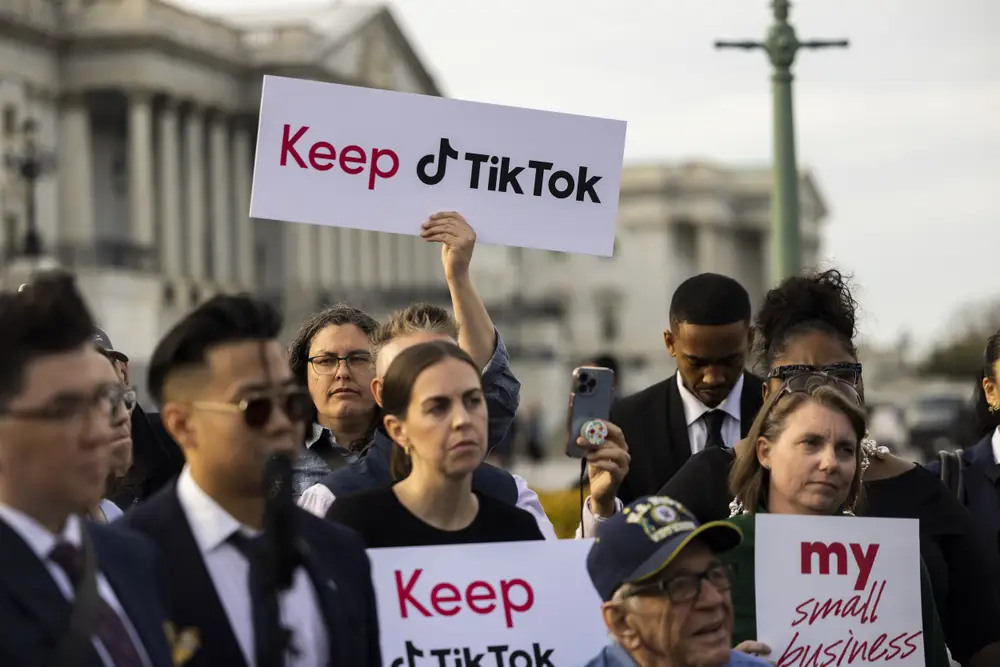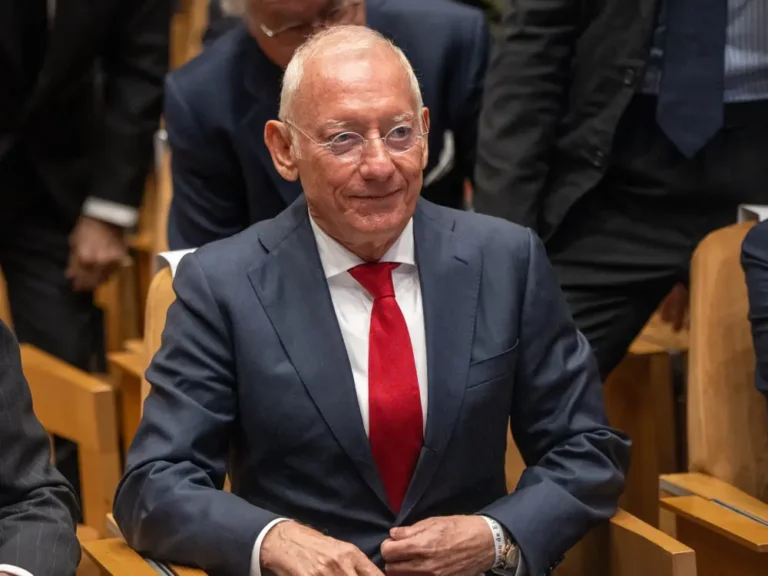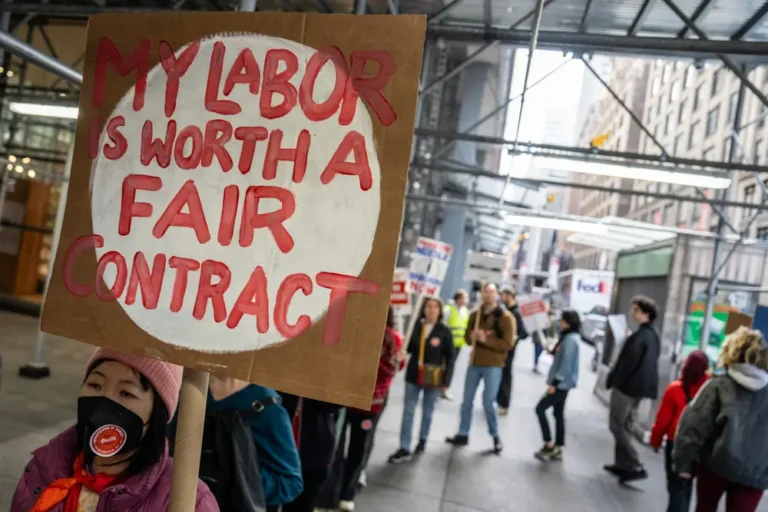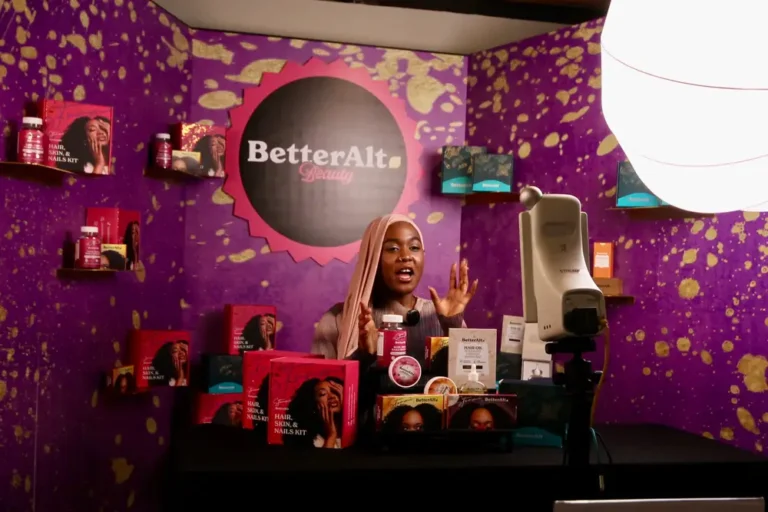Donald Trump’s pledge to ‘never ban’ TikTok will be tough to fulfill

TikTok could leave US app stores as early as January.
Donald Trump may not be able to save TikTok, despite pledging to do so on the campaign trail.
In June, the president-elect told the app’s users he would “never ban TikTok.” This may have earned him some support from the app’s fans, business partners, and employees who rely on TikTok to make money.
As things stand, TikTok is still marching toward its demise in the US due to an April law passed by Congress that forces its owner, ByteDance, to either divest from its US assets or face a ban from app stores.
TikTok is challenging the law in the US Court of Appeals for the District of Columbia Circuit. So far, it’s not going great for the company. TikTok is making a free-speech argument against alleged national security concerns tied to its owner being based in China, which the US government has designated a foreign adversary. The DC Circuit often shows deference to Congress when it comes to national security. The case may ultimately end up in the Supreme Court.
Without court intervention, the app is set to be either sold (unlikely) or banned on January 19, the day before the inauguration. Before leaving office, President Joe Biden has the option to extend that deadline by 90 days, and he hasn’t indicated he will do so.
Legal experts told B-17 that TikTok’s future in the US is still very much in question despite Trump’s election win. The company has to prevail in the courts first to give its app a shot at sticking around, as Trump can’t simply repeal the law.
“Because the law was enacted by Congress, I’m not sure how much wiggle room a future Trump administration would have to ignore it,” G.S. Hans, a clinical professor of law at Cornell Law School, told B-17.
Trump could try to persuade Congress to repeal or change the law, although that seems unlikely, said Matthew Schettenhelm, a litigation and policy analyst at Bloomberg Intelligence.
“If TikTok loses the case, as I expect, it’s much harder to see Trump stopping the ban from taking effect on January 19,” he said.
Trump has two options to try to rescue TikTok once in office. Neither of them is straightforward, legal sources told B-17.
Strategy one: Don’t enforce the law
Trump could guard TikTok by asking his Justice Department not to enforce the Protecting Americans from Foreign Adversary Controlled Applications Act regarding TikTok.
“There’s some history with Justice Departments or the president taking issue with a law that’s on the books, not enforcing it, potentially declaring it unlawful itself, or refusing to defend it,” said Aram A. Gavoor, a former Justice Department senior counsel who now serves as associate dean for academic affairs at the George Washington University Law School.
As an example, Gavoor pointed to the decision by former president Barack Obama’s administration to stop defending the Defense of Marriage Act, a since overturned law that banned federal recognition of same-sex marriage.
If Trump avoids enforcing the divest-or-ban law, it may not stand up to a legal challenge, as it’s possible the Supreme Court will have already upheld its constitutionality by the time he attempts to ignore it.
And if Trump’s Justice Department opts not to defend the law, Bloomberg’s Schettenhelm said it could be risky for American companies like Apple and Google that host TikTok in app stores to keep it around. Trump has already flip-flopped on TikTok after attempting to ban and then force a sale of the app in 2020. Who’s to say that he may not change his mind again?
“I’m not sure they’d want to risk enormous liability on the hope that President Trump wouldn’t change his mind and start enforcing the law against them,” Schettenhelm said.
Strategy two: Act like the law doesn’t apply to TikTok
Trump could also claim that TikTok isn’t subject to the divest-or-ban bill.
This one feels a bit absurd, as the bill specifically names TikTok and ByteDance as covered companies.
Gavoor said it’s possible that TikTok and ByteDance could reorganize so that they don’t “trigger the direct definition of their names or a subsidiary or a successor entity” under the law.
“There’s a variety of different potential corporate structures that they’re undoubtedly considering,” Gavoor said.
University of Minnesota law professor Alan Rozenshtein also told Fast Company that Trump could declare that ByteDance divested from TikTok without actually requiring it to do so.
Both these approaches would attempt to skirt around the bill’s language to avoid enforcing it.
Cornell’s Hans said any tactic a future Trump administration might take to keep TikTok around would be “uncharted territory.”
“Given that the effective date of the law is the day before inauguration day, there are all sorts of open questions as to how this will play out,” he said.
Of course, given all the legal obstacles, Trump may decide that saving TikTok isn’t worth the effort as he pursues other issues in his first days in office.
Representatives for the Trump campaign and TikTok did not respond to requests for comment.






